detail profile jackie raynal

Jackie Raynal
Jacqueline Raynal
atau dikenal sebagai
Riwayat Hidup
Jacky Raynal is French directress, actress and film editor.
She's born in 1940 near Montpellier.
The film maker has a diploma in Linguistics.
In the early 60's, already a photographer, young Jacky Raynal starts working in the field of cinema.
She's assistent film editor for the documentarys of G.
Patriss and F.
Vienne.
After that, she edits the first films of E.
Rohmer.
In 1965 J.
Raynal gets the license of senior film editor for feature films in CNC (National Cinema Center).
Now she's working with the film directors of the New Wave.
She edits all of the skecthes of Six in Paris, directed by Jean Douchet, Jean Rouch, Jean-Daniel Pollet, Eric Rohmer, Jean-Luc Godard and Claude Chabrol.
Jacky Raynal continues to work in editing till the end of 70's.
In 1968, with S.
Boissonas and O.
Mosset, she's the founder of the Zanzibar group.
She works with Philippe Garrel, Serge Bard, Daniel Pommereulle, Alain Jouffroy and Patrick Deval.
J.
Raynal shoots her first feature film Two Times in Barcelona.
In 1972, the movie wins the Grand Prix in the Festival of Hyères/Toulon.
At that time she's already living in New York.
There, between 1975 and 1992, she's responsible for the programs of Carnegie Hall Cinema and Bleeker Street Cinema.
She shows there numerous independent international films.
Her job in New York is appreciated by F.
Truffaut (he compares it with the French Cinematheque) and awarded twice by the Village Voice in 1981 and 1991.
J.
Raynal directs New York Story (Grand Prix in Melbourne) and Hotel New York.
In the same time, she plays in several movies, organises numerous international cinema festivals, like Colombian Film Festival, Israel Film Festival or Avignon Film Festival.
From 1973 to 1986, with Sid Geffen, they're publishing the independent international cinema review 1000 Eyes Magazine.
From 2000, Jacky Raynal directs numerous documentarys, like Notes on Jonas Mekas (2000) or Eric Rohmer, the Film Maker (2010).
In 2010, Jacky Raynal is rewarded for her work in arts the Légion d'Honneur (Knight in the Order Arts and Letters).
Info Pribadi
Peran Yang Di Mainkan Jackie Raynal
 Mr Devereaux is a powerful man...
Mr Devereaux is a powerful man...Welcome to New York 2014
Mr. Devereaux is a powerful man. A man who handles billions of dollars every day. A man who controls the economic fate of nations. A man driven by a frenzied and unbridled sexual hunger. A man who dreamed of saving the world and who cannot save himself. A terrified man. A lost man.
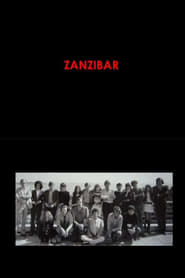 A documentary by Jackie Raynal about...
A documentary by Jackie Raynal about...Zanzibar 2005
A documentary by Jackie Raynal about the artistic movement Zanzibar.
 30 years after their artistic revolution members...
30 years after their artistic revolution members...Zanzibar à Saint-Sulpice 1999
30 years after their artistic revolution, members of the Zanzibar group meet in 1999 in Saint-Sulpice Square in Paris (France) in front of Gérard Courant's camera.
 Cinmaton is a 156hour long experimental...
Cinmaton is a 156hour long experimental...Cinématon 1978
Cinématon is a 156-hour long experimental film by French director Gérard Courant. It was the longest film ever released until 2011. Composed over 36 years from 1978 until 2006, it consists of a series of over 2,821 silent vignettes (cinématons), each 3 minutes and 25 seconds long, of various celebrities, artists, journalists and friends of the director, each doing whatever they want for the allotted time. Subjects of the film include directors Barbet Schroeder, Nagisa Oshima, Volker Schlöndorff, Ken Loach, Benjamin Cuq, Youssef Chahine, Wim Wenders, Joseph Losey, Jean-Luc Godard, Samuel Fuller and Terry Gilliam, chess grandmaster Joël Lautier, and actors Roberto Benigni, Stéphane Audran, Julie Delpy and Lesley Chatterley. Gilliam is featured eating a 100-franc note, while Fuller smokes a cigar. Courant's favourite subject was a 7-month-old baby. The film was screened in its then-entirety in Avignon in November 2009 and was screened in Redondo Beach, CA on April 9, 2010.
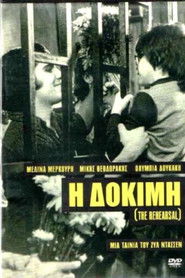 An indictment of the Greek military...
An indictment of the Greek military...The Rehearsal 1974
An indictment of the Greek military junta of 1967–1974. The film tries to give a reconstruction of the events during the students' uprising in the Athens Polytechnic (November 1973) by documents, rehearsals, interviews, songs and poems.
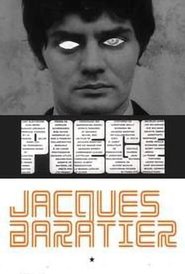 A genuine performance film as Bernadette...
A genuine performance film as Bernadette...Trap 1970
A genuine performance film as Bernadette Laffont and Bulle Ogier engage, with reckless abandon, in a flurry of senseless destruction in a house at night. Somewhere between a hallucination and a nightmare. Both the explosive soundtrack and narration that accompanies the mayhem was provided by François Tusques.
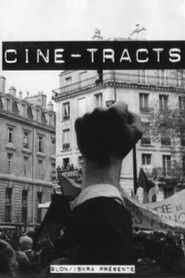 A series of 43 documentary shorts directed...
A series of 43 documentary shorts directed...Cinétracts 1968
A series of 43 documentary shorts, directed (without credit) by several famous French filmmakers and each running between two and four minutes. Each "tract" espouses a leftist political viewpoint through the filmed depiction of real-life events, including workers' strikes and the events of Paris in May '68.
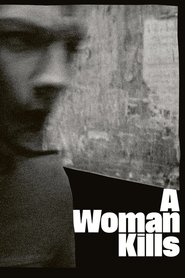 Paris in the 1960s A series...
Paris in the 1960s A series...A Woman Kills 1968
Paris, in the 1960s. A series of crimes troubles the public tranquility. On March, 22, 1968, Hélène Picard, a prostitute sentenced to death two years before for several murders, is killed by executioner Louis Guilbeau. Immediately, the violent crimes, similar to Hélène’s ones, go on again. In parallel, Louis is having an affair with the police woman in charge of the investigation… What are the obscure relations hidden behind the executioner and the mysterious killer? Who is this dark man in reality?
 A bombastic womanizing art dealer and...
A bombastic womanizing art dealer and...La Collectionneuse 1967
A bombastic, womanizing art dealer and his painter friend go to a seventeenth-century villa on the Riviera for a relaxing summer getaway. But their idyll is disturbed by the presence of the bohemian Haydée, accused of being a “collector” of men.
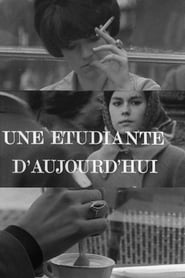 Eric Rohmer directs this short documentary...
Eric Rohmer directs this short documentary...A Modern Coed 1966
Eric Rohmer directs this short documentary that narrates the presence of women in French universities as of the time of its release -- 1966. During the film's short run, the narrator continues to point out that during the advent of World War II, only 21,000 women attended college and made only a 30 % of the student body, a number that by the 1964-1965 school year had passed the 120,000 mark. Instead of opting to live according to what was expected of them, now they were joining the work force, trading in aprons for lab jackets and becoming professionals even after getting married.
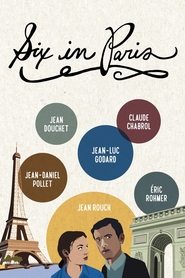 Six vignettes set in different sections...
Six vignettes set in different sections...Six in Paris 1965
Six vignettes set in different sections of Paris, by six directors. St. Germain des Pres (Douchet), Gare du Nord (Rouch), Rue St. Denis (Pollet), and Montparnasse et Levallois (Godard) are stories of love, flirtation and prostitution; Place d'Etoile (Rohmer) concerns a haberdasher and his umbrella; and La Muette (Chabrol), a bourgeois family and earplugs.
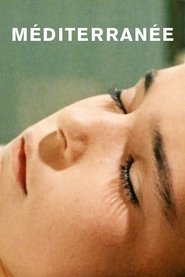 Here Pollet made a work that...
Here Pollet made a work that...Méditerranée 1963
[Here] Pollet made a work that is the very definition of what French critics like to call an ovni or ufo (as in ‘unidentified filmic object’). [It] has been described as being ‘like a comet in the sky of French cinema,’ an ‘unknown masterpiece,’ and an ‘unprecedented’ work that refuses interpretation even as it has provoked reams of critical writing. Its rhythmic collage of images – a girl on a gurney, a fisherman, Greek ruins, a Sicilian garden, a Spanish corrida – is accompanied by an abstract commentary written by Sollers, and only the somber lyricism of Antoine Duhamel’s score holds the film’s elements together. At first viewing, you fear that [it] might fly apart into incoherent fragments. Instead, over the course of its 45 minutes it invents its own rules, and you realize you’re watching something like the filmic channeling of an ancient ritual. – Chris Darke, FILM COMMENT
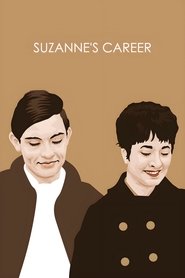 In the second of Rohmers moral...
In the second of Rohmers moral...Suzanne’s Career 1963
In the second of Rohmer's moral tales, he examines the relationship between two friends and a girl who at first appears easily exploited. It is a complex tale of feelings and misconceptions, acted out within the head of the main character, as part of Rohmer's attempt to more easily simulate the mindscape quality of literature within a film.
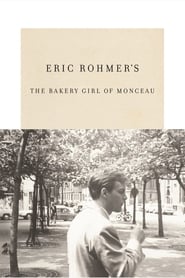 Early new wave effort from Rohmer...
Early new wave effort from Rohmer...The Bakery Girl of Monceau 1963
Early new wave effort from Rohmer, which was the first of his six moral tales. It concerns a young man who approaches a girl in the street, but after several days without seeing her again, he becomes involved with the girl in the local bakery. Eventually, he has to choose between them when he arranges dates with them on the same day.
 A spoiled teenager spends the summer...
A spoiled teenager spends the summer...Bonjour Tristesse 1958
A spoiled teenager spends the summer at the French Riviera with her rich, widower, playboy father, but when his old flame resurfaces, she resolves to keep her frivolous lifestyle at all costs.
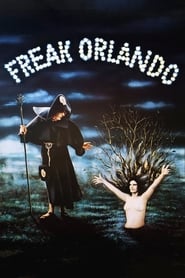 FREAK ORLANDO is divided into five...
FREAK ORLANDO is divided into five...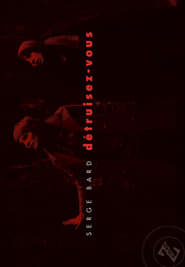 Detruisezvous is a primitive film which...
Detruisezvous is a primitive film which...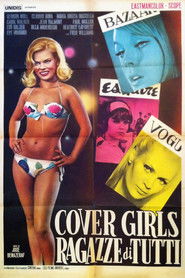 Photographer Philippe Abregas teams up with...
Photographer Philippe Abregas teams up with...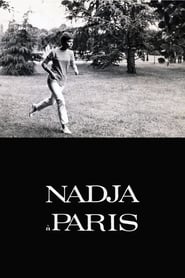 Nadja is a guest student who...
Nadja is a guest student who...